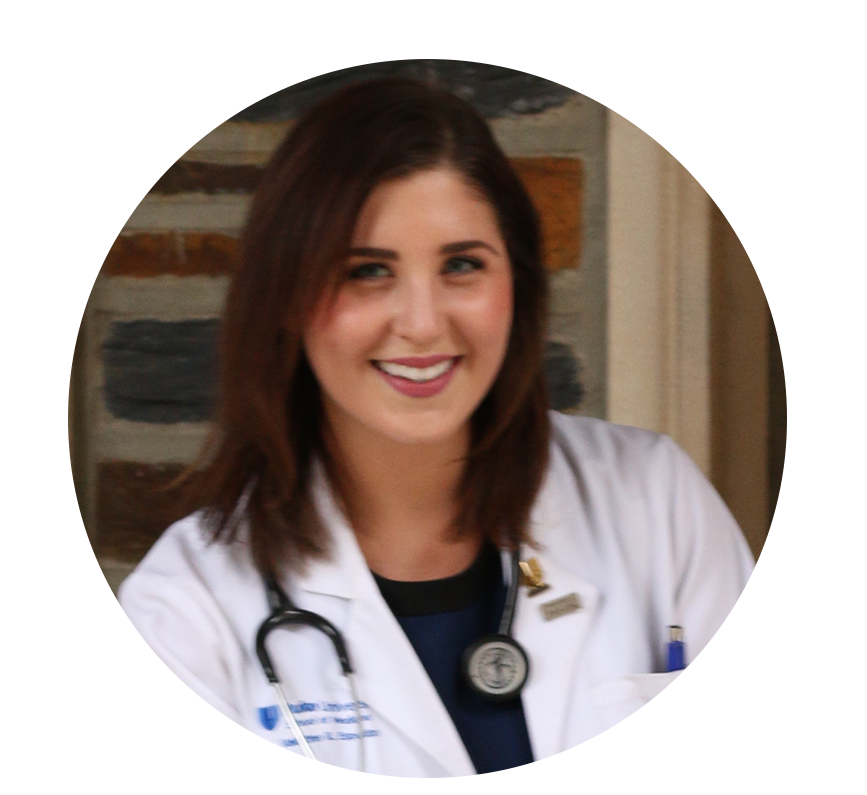
I was immune to Medical Student Syndrome. Even after completing all of my preclinical coursework and core clinical rotations, not once did I go running to Student Health thinking a headache was a brain tumor or that a peculiar bruise was most certainly a curious anemia. In fact, my time in medical school had nearly the opposite effect on my perception of my own symptoms: I developed what I have come to call Meeting Criteria Syndrome.
I felt unwell, and I had felt this way for a long time. I could not put my diagnostic finger on it, yet I knew something was pathologic as I felt trapped in a state of disequilibrium that I could never clinically articulate. My clinical year had just ended, and I assured myself that this was merely residual fatigue – enough sleep would surely be curative. But when sleep failed, I thought maybe I just wasn’t truly rested; after all, I had a lot on my plate inside and outside of the hospital. I began to think that maybe this was just what being a medical student at 25 years old felt like.
What could I do about it? I decided to keep moving: more patients, more research, more extracurriculars, more… of everything. I took up hiking and cycling and would move until my legs deadened. At one point, I fractured my radial head, but I kept doing more, temporarily with one hand until I got out of my splint. But no matter how much more I did, how fast I moved, the feeling of being okay remained persistently beyond my grasp. I was furiously trying to fix a problem that I couldn’t name, and because of that, all of my time-honored solutions for feeling better fell painfully short. My new normal was being perpetually not-okay.
You may be thinking, “she sounds somewhat depressed or anxious.” Bingo. Entirely unknowingly, I spent over two years watching myself approach DSM-5 Criteria for a variety of diagnoses, namely among them depression, anxiety, and anorexia. But, notably, I didn’t have Depression or Anxiety or Anorexia, at least by the metrics we define them in the medical field: I didn’t meet Criteria.
The thing was, DSM-5 Criteria and I were old friends. I lived with Criteria: I was raised by it, and I was also a big sister to it twice over. I watched my family grapple with all types of Criteria long before I could even remember, and I had come to know it in both its latent and extreme forms. I had helped treat patients with Criteria on and off my psychiatry clerkship. I knew Criteria. But not once in my life did I ever meet Criteria, this quarter-life medical school funk of mine included.
And I knew this because I spent my time checking Criteria, seeing how I would measure up against SIGECAPS. I never had any suicidal ideations or guilt. And I never had any trouble sleeping: being able to fall asleep anywhere at any time, including airplanes during takeoff, was, and remains my greatest medical student asset. My energy was always running low, but what medical student has a ton of energy? I noticed I had become a bit more fidgety, especially with the silver heart ring I wore that I constantly spun absentmindedly. My appetite was fine, though I dropped a few pounds, painstakingly and intentionally, and longed for more to fall. And while my brain was occasionally foggy during caffeine deficits, I felt cognitively sharp. When it came to interest in activities, I had only been adding to my roster, and I genuinely enjoyed them all.
On the whole, I was still the happiest medical student you could ever meet. If you passed me in the halls of the hospital, I would have the biggest smile on my face. It was big enough to make you reflexively smile back at me. And whether it was at the top of a mountain or in the middle of a grocery store, I smiled to myself every day when I would spontaneously be overcome with the realization that the world is an incredible place and that I was the luckiest girl to have the life I did, a life that mysteriously always felt like Christmas. I maintained an unshakeable positivity and unfailing sense of gratitude that always overshadowed any looming Criteria.
Yet still, I felt wholly unwell. In failing to meet criteria and in the absence of a formal diagnosis, I assumed there was nothing medical to be done. Furthermore, I believed that didn’t deserve treatment because I wasn’t sick enough. I thought of my family members’ struggles with mental illness, and again I didn’t measure up. They most certainly warranted help because they were suffering far more than I was. To cope, I leaned into being tough, and I was as tough as they came because when you look like Harry Potter for the better part of middle school, you know how to be tough. Not only did I not meet Criteria for help, but I eventually convinced myself that I didn’t need it, and I was perversely proud of that fact.
But eventually, I did need help. I had grown concerned when putting on my faded Yankees t-shirt and singing along to Brett Eldredge while I slow cooked red sauce on Sunday mornings, a tradition always followed by a coffee-fueled movie marathon, started bringing me less joy than usual. I could never figure out where this fit neatly into SIGECAPS, but it felt clinically significant as this was me when I was most myself. Student Health quickly referred me to an outpatient therapist where I learned that it was, in fact, possible to feel depressed and anxious without having Depression or Anxiety, and that I still could benefit from and unquestionably deserved treatment in both cognitive and pharmacological forms. This may seem obvious, but it was a lesson I learned the long way. And eventually, with time, I discovered that I met Criteria for an Eating Disorder, something that was perhaps present all along, but I that was willfully able to ignore.
Medical school had trained me to think categorically: acute versus chronic, benign versus neoplastic, stable versus unstable, meets Criteria or doesn’t. This binary method of thinking is valuable as it helps us provide the right care to the right patients at the right times. However, this method of categorical and absolute thinking can be dangerous when healthcare providers turn it on ourselves. When we start to internalize that we aren’t entirely sick enough to get help, we delay getting preventative care and do ourselves immeasurable harm. And this extends beyond the realms of mental illness. I have spoken to many of my peers who hesitate to go to see a physician for abdominal pain unless they feel their pain is severe enough to warrant an endoscopy, or more dramatically, an exploratory laparotomy. We postpone having a cough evaluated until we are sure it isn’t just a common cold and is more likely a lobar pneumonia requiring antibiotics. We wait to meet Criteria to seek treatment because we know enough medicine to be dangerous to ourselves.
What is most interesting though, is whenever I met a patient that had delayed seeking care because they didn’t believe themselves to be “sick enough,” I always quietly wished that they had come in sooner. I would explain that I am happy when patients seek treatment at any stage of illness because I am happy to do whatever I can to make them feel better. Beyond that, I would take time to assure them that illness is not something that can ever be weighted, ranked, or compared because it is experienced individually. And I felt this way because medical school also taught me that all patients are equally deserving of empathy, understanding, and attention, regardless of their categorical designation or ability to meet Criteria. I just could not seem to view my own health in the same fashion.
Please remember that we take an oath to heal, and nowhere in that oath is there a contingency that patients must be a certain degree of ill to earn our compassion or care: we deserve to treat ourselves with this same consideration and kindness. We owe it to our profession, to our patients, and above all, to ourselves, to seek treatment as soon as we begin to feel unwell in whichever form it takes.
This piece was originally posted here: https://valentinerae.org/2018/02/03/meeting-criteria/.



